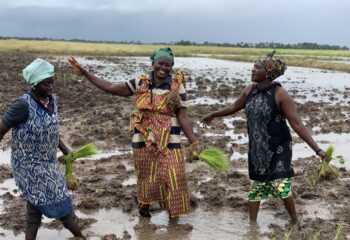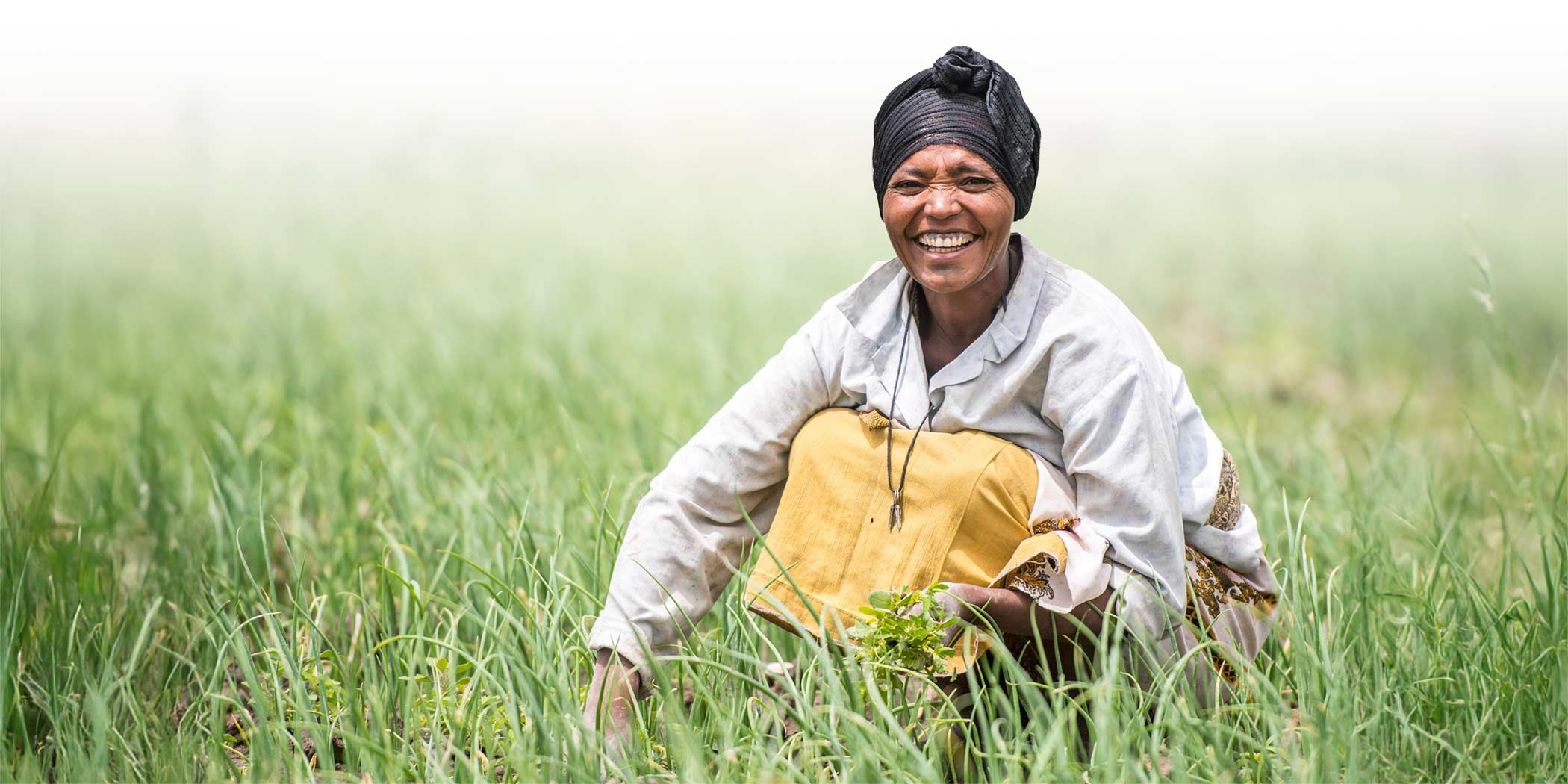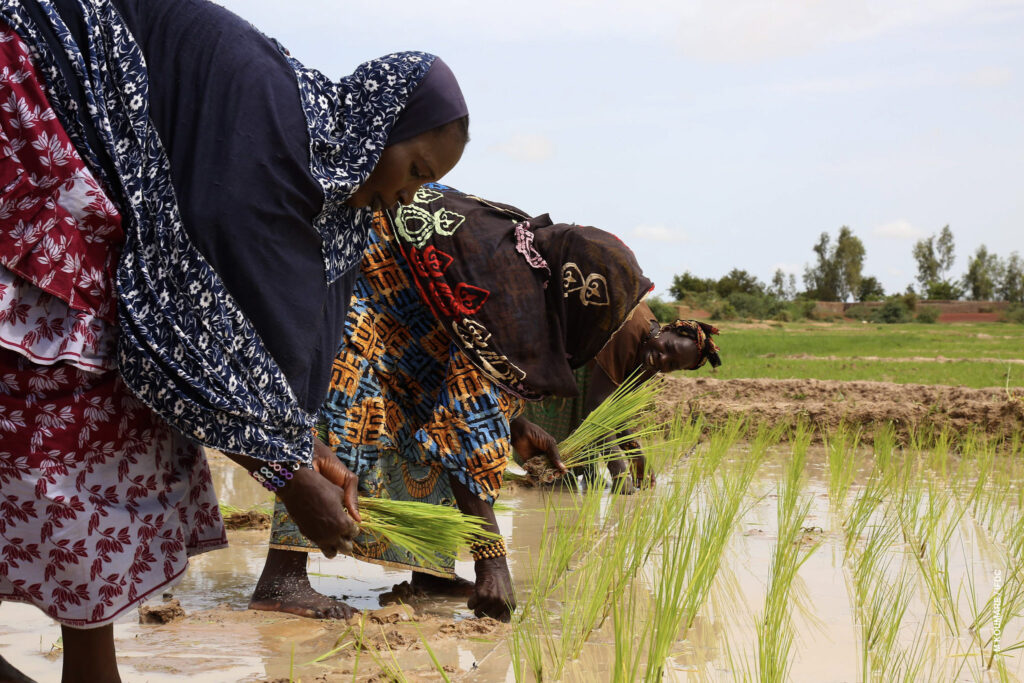
The Rice Value Chain Development Project (PDCVR-G) project (2019-2025) aims to reduce the high rate of rice imports in Guinea – approximately 700,000 metric tons (mt) per year – and promote economic growth by improving production, processing, and marketing and increasing private sector participation in the rice sector.
The project specifically targets enhancing the productivity and capacity of smallholder farmers, with a focus on ensuring that 45% are women and young farmers.
These small-scale producers will gain access to new technologies, modernized irrigation systems, improved seeds, financial resources, technical support, and advisory services. Additionally, the project aims to create fair and decent employment opportunities in agriculture, strengthening the economic position of rural communities.
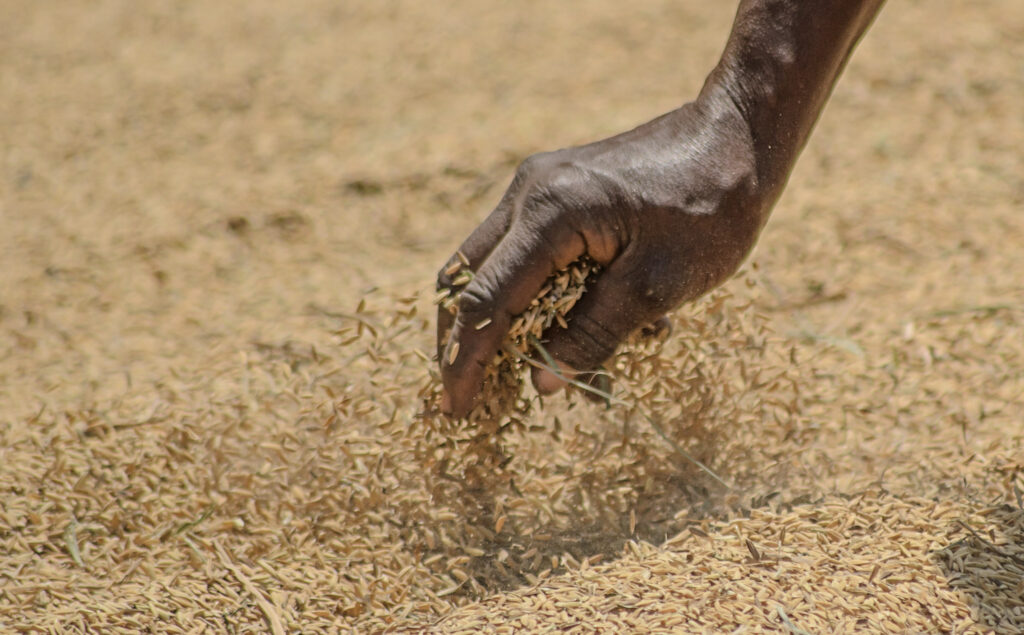
Expected Outcomes
- Annual household income will increase from U.S. $300 (2017 baseline) to U.S. $1,000.
- Lowland rice field yields will improve from 4 mt/ha to 6 mt/ha.
- Yield for tomatoes and onions will rise from 20 mt/ha to 30 mt/ha and the total volume marketed will increase by 100%.
- A total of 25,000 new jobs in agriculture will be created, contributing to local employment and economic development.
Farmer field schools will be established to promote urea deep placement (UDP) technology, farmers will be trained on good rice-growing practices, and soil fertility maps will be developed to guide fertilizer recommendations for rice fields in Lower and Upper Guinea. These efforts are designed to improve productivity, optimize fertilizer use, and ensure sustainable soil management, ultimately strengthening Guinea’s rice sector.
PDCVR-G is funded by the Islamic Development Bank (IsDB) and the Arab Bank for Economic Development in Africa (BADEA) and is implemented through a collaboration with key national partners, including the Ministry of Agriculture and Livestock (MAG/EL), the Guinea Agronomic Research Institute (IRAG), the Rural Promotion and Agricultural Extension Service (SERPROCA), the National Soil Service (SENASOL), and various farmer organizations.
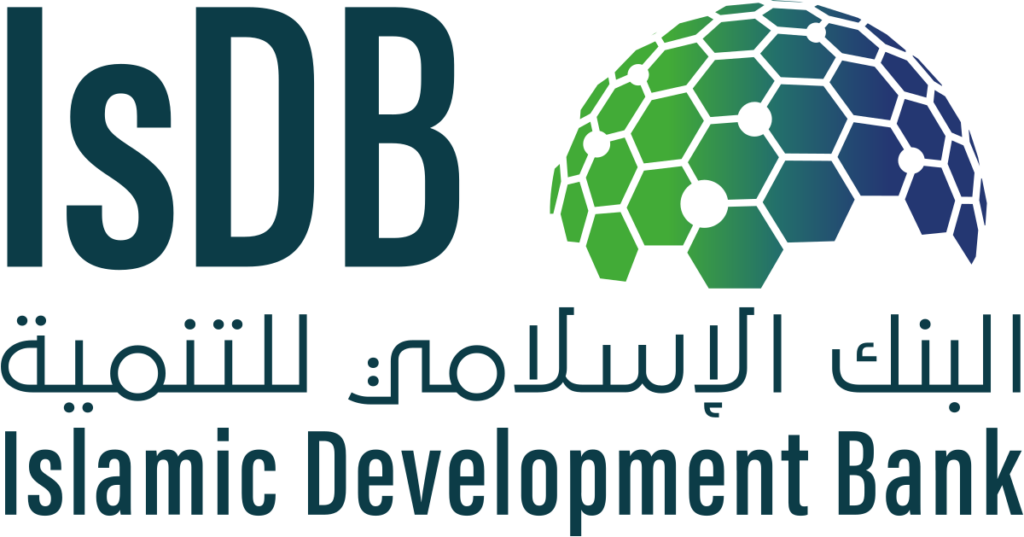
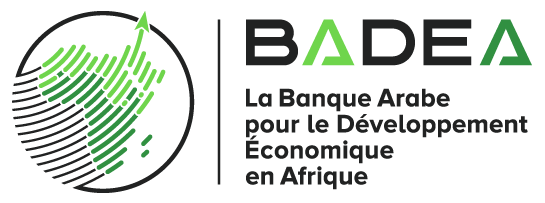
This project is made possible by the support from the Islamic Development Bank and the Arab Bank for Economic Development in Africa (BADEA).
Project Impact
- Trained 1,350 farmers (20% of whom were women) had been trained on UDP technology.
- Established 48 demonstration plots using the farmer field school approach.

